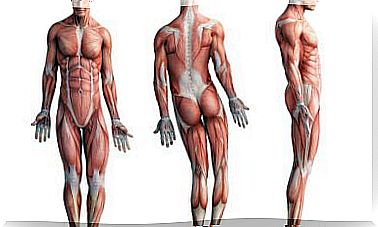Can I Get Pregnant If I Have Amenorrhea?
Menstruation is an indication that the ovulation stage has ended, therefore, its absence alarms many women. Do you know what amenorrhea is? Could you get pregnant if you have it? Discover the answers below.

Lack of menstruation is a source of concern for some women, since it is associated with infertility. This makes many of them wonder: can I get pregnant if I have amenorrhea? Keep reading and we will explain it to you.
It is important to remember that every month women go through a period of ovulation, during which fertilization can occur if they have sexual intercourse. The end of this period is marked by menstruation, which is the expulsion of the superficial layers of the endometrium.
What is amenorrhea?
A simple way to define amenorrhea is that it is the absence of menstruation. However, this constitutes one of the main reasons for consultation in the area of gynecology and obstetrics, since it triggers great concern in those who suffer from it.
In most cases, the presence of amenorrhea is an indication that ovulation did not occur during that month. Therefore, it can be associated with infertility. However, this symptom is not always caused by a pathology.
In this way, the absence of the menstrual cycle can occur in certain physiological states, such as childhood, pregnancy, lactation, perimenopause and menopause.

Types of amenorrhea and their main causes
Because women go through menstruation periods most of their lives, specialists decided to classify amenorrhea into two types. They are based on the age of presentation and have different causes.
Primary amenorrhea
This constitutes the absence of the first menstruation in young people who have reached the age of 16 with normal growth and secondary sexual characteristics. However, if at age 13 there is no pubic hair or first period, its existence should be suspected.
When dealing with young adolescents, most of the causes of primary amenorrhea are originated in the presence of congenital malformations or genetic alterations. In this sense, among the most common causes we can find the following:
- Imperforate hymen.
- Malformation in the uterus or vagina that prevents the outflow of blood.
- Pituitary or hypothalamic tumor.
- Mullerian agenesis.
- Turner syndrome.
Secondary amenorrhea
When we talk about secondary amenorrhea we refer to the absence of menstruation for at least 3 months, in women who have had regular menstrual cycles before. In this way, most of those who suffer from it are between 25 and 35 years old.
The main cause of this symptom is pregnancy, since you will not ovulate during the entire pregnancy. However, it can also be caused by breastfeeding, menopause, and the use of birth control pills. In addition, there are certain predisposing factors, such as obesity, stress, anxiety, and intense exercise.
When the cause of amenorrhea is not physiological, it may be caused by an acquired disease. Thus, the secondary variant can be caused by any of the following pathologies:
- Polycystic ovarian syndrome.
- Thyroid pathologies: hypothyroidism and hyperthyroidism.
- Prolactin-secreting pituitary or hypothalamic tumor.
- Drugs to treat schizophrenia or psychosis.
- Premature ovarian failure.
Can I get pregnant if I have amenorrhea?
Now that we know what amenorrhea is, what its types and causes are, it is time to answer the question: can I get pregnant if I have amenorrhea? The answer will depend on the type of disorder and its cause.
In the case of primary amenorrhea, when it is due to a congenital malformation or imperforate hymen, it is possible to become pregnant. Ovulation is occurring normally, however, blood is not being expelled. The solution to this problem is usually surgery.
On the other hand, when primary amenorrhea is caused by gonadal dysgenesis, such as Turner syndrome, it is impossible to achieve pregnancy naturally. However, there is the possibility of doing it by artificial insemination with egg donation.
When we refer to secondary amenorrhea caused by drugs or some predisposing factor, it is only necessary to eliminate the cause to regulate menstrual cycles and thus achieve conception. On the other hand, if it is secondary to polycystic ovary syndrome or thyroid pathologies, it is much more difficult to get pregnant, although not impossible. What should be done is to stay under constant medical control and treat the underlying pathology.
Finally, when amenorrhea is the product of a prolactin-producing tumor, multiple factors must be taken into account. In this case, pregnancy will only be possible if it is a microadenoma or a small tumor. In addition, the respective medical treatment should be started and have an appropriate control.

Amenorrhea does not always prevent pregnancy
The presence of amenorrhea is not always an indication of infertility. Although conception will be a bit more difficult, in most cases it will only be necessary to initiate the appropriate treatment and have a periodic medical check-up.
In addition, in those disorders in which it is not possible to conceive naturally, such as Turner syndrome, there is always the option of performing artificial insemination. Medical advances and surgical options currently make it possible to improve the prognosis of pathologies that were previously non-invasive.









